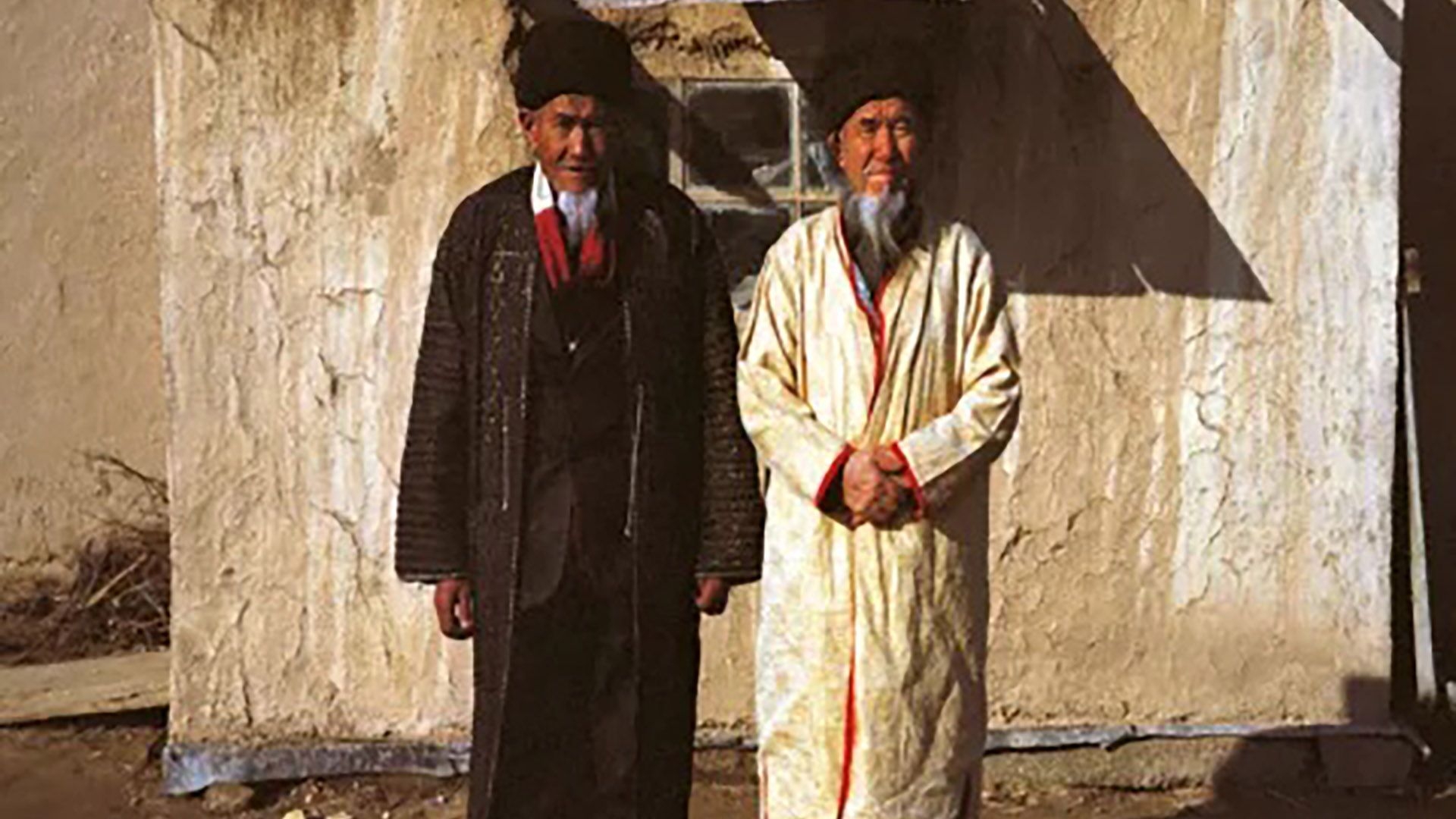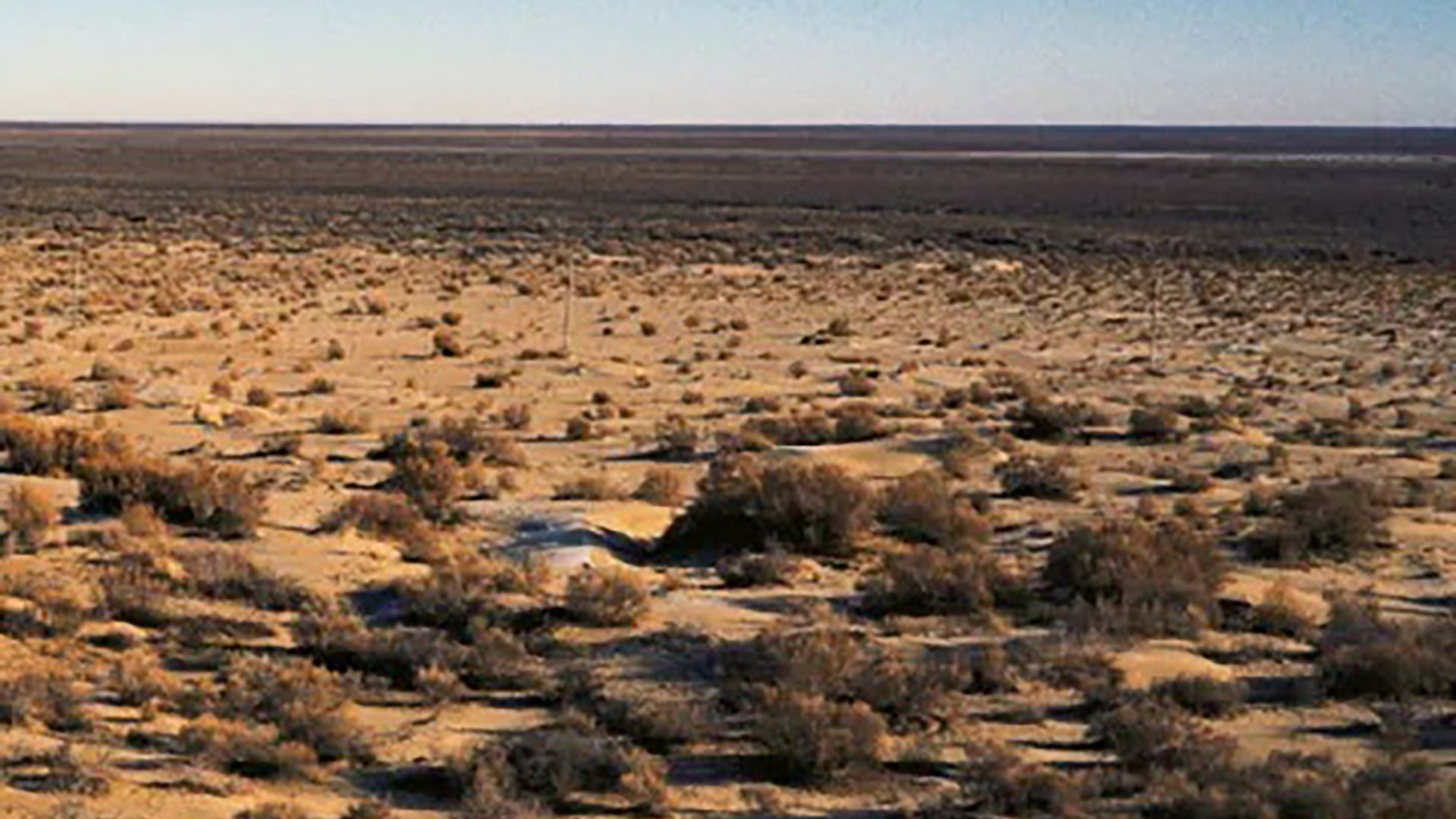Aral. Fishing in an Invisible Sea
“As humans reshape the landscape, we forget what was there before. /—/ Yet ghosts remind us. Ghosts point to our forgetting, showing us how living landscapes are imbued with earlier
tracks and traces.”* Rusting ships, and a crust of salt and dust exposed on the former seabed act as ghostly reminders for future generations of a ecosystem that once was.
The Aral Sea, which was once the world’s fourth-largest lake, is now often referred to in Central Asia as the “Aralkum Desert” (Aral Sand Desert). The people of the area are portrayed in their daily chores and rituals struggling to sustain life in the deserted landscape. The rapidly disappearing sea, which in only 30 years (1960–1990) lost half of its volume, a process accelerated due to Soviet irrigation projects at the expense of the environment to grow cotton, aka “white gold”, makes it the greatest ecocidal act in human history.
The film is being shown as part of the public programme of the exhibition “Art in the Age of the Anthropocene”.
- E. Gan, et al. “Introduction. Haunted Landscapes of the Anthropocene,” Arts of Living on a Damaged Planet: Ghosts and Monsters of the Anthropocene. Eds. A. Tsing, et al. Minneapolis: University of Minnesota Press, 2017, p. G6.
Introduction by Ann Mirjam Vaikla, a contemporary art curator at Kumu


